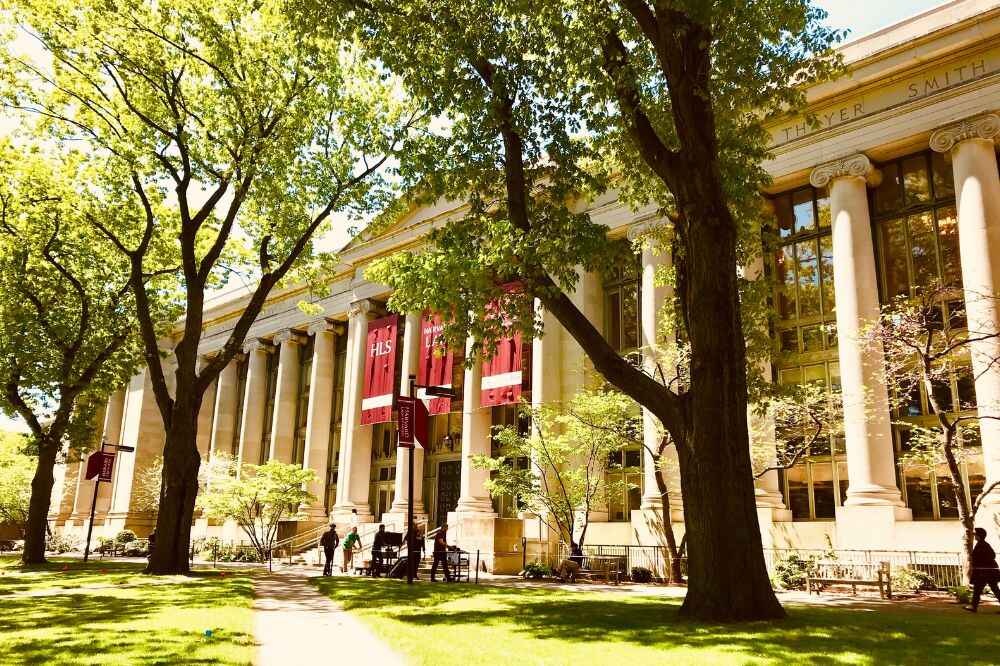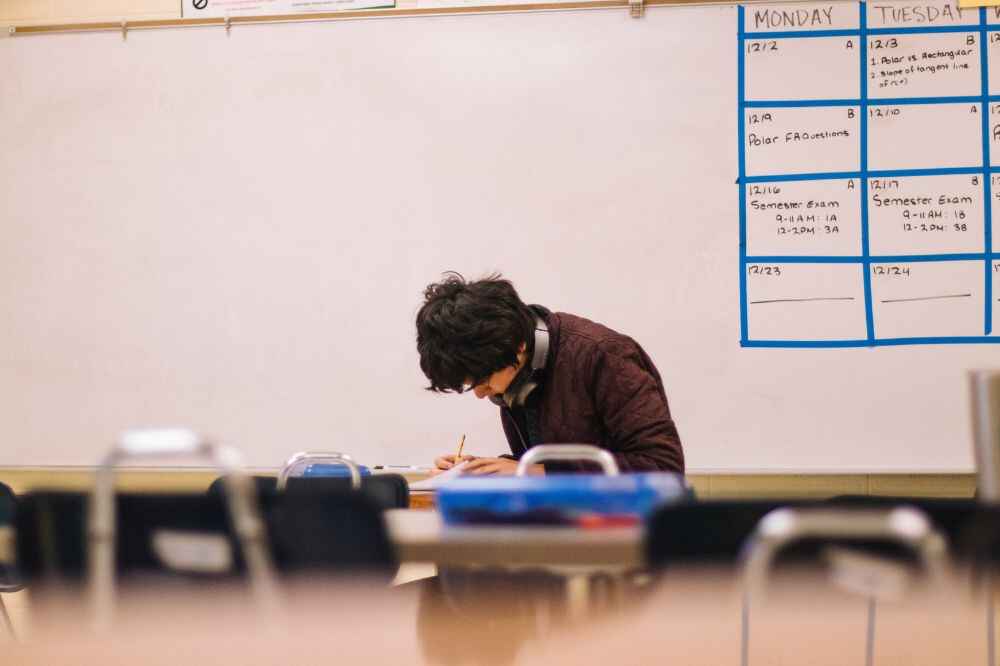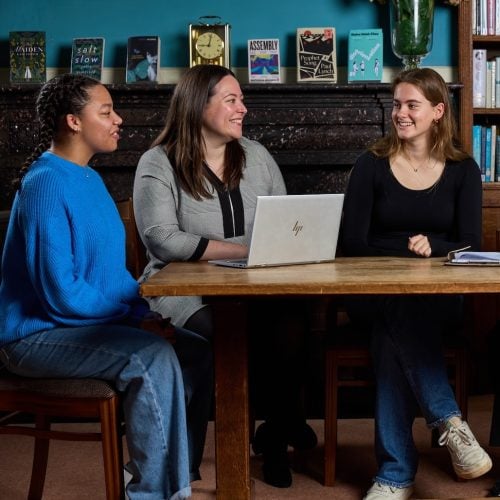What it takes to get into US unis (and why they’re all the rage)
Thinking about studying for a degree across the pond? Find out how to get in with a chance from the guys who snag 50 Ivy League offers a year with their honest advice and tutoring.

Who better to demystify the whole US uni experience than an organisation that’s been helping students get in for the last 20 years? A-List Education, founded in New York, set up a London office 10 years ago to meet the growing demand among UK students, and now snags Ivy League offers galore for its students, despite competition hotter than Oxbridge. Muddy talks to director Alison Bissell for the lowdown.
Why is there more interest in US universities for British students these days?
Everybody is generally savvier about universities abroad because there’s so much more information out there, and when it comes to US universities in particular, students value the educational system which keeps the learning broader for longer – for at least the first two years of your US degree you don’t specialise. So we get students who might be Oxbridge calibre but who choose to apply to the US because they don’t want to narrow their choices.
There’s also no limit on the number of universities you can apply to in the US which is appealing to some – you could apply for all eight Ivy League unis (not that we’d recommend that!).Then you’ve got the employability prospects to consider, especially in computer science, engineering and business and the international experience.
Is there a type of student better suited to the US university experience?
Well, US universities are looking for students who are committed to community because the four years are usually spent on campus and it’s expected you’ll contribute in a way that is not prioritised in the UK. But in terms of the student who is best for the US, there’s no one type really, there will be a home for everyone in the US because of the range of options on offer – you can choose from big state universities with their own stadium and thousands of students to a small liberal arts college, or the Ivy League that caters to ambitious academics. This is one aspect of what we’d cover with a family in our first meeting, bearing in mind the student’s ambition and of course also being realistic.

Is the Ivy League really as elite as it sounds?
The crudeness of university rankings overlooks that some of the best teaching happens at the smaller universities which might have amazing teacher to student ratios or collaborations and so on. We like to get students excited about those options as well as the big brand names. The minority are targeting the prestige of the Ivy League, but there are thousands of institutions with value.
Do US unis specialise more than those in the UK? MIT for tech, Harvard for business?
I’d say they’re similar to the UK – American universities are generalist academic institutions though some are better known for some subjects than others . Big brand names like Massachusetts Institute of Technology (MIT) are renowned for STEM, but less well known is they also have one of the US’s leading linguistics departments – that’s where our specialist knowledge can help. And in terms of university ‘feel’ it’s good to know insider info too. Ivy League universities may seem similar on first glance but they have different characters, sizes, settings and specialisms. If a student wants a leafy pastoral setting then they should consider Dartmouth, for example, over New York. One thing to point out is that US unis don’t tend to offer apprentice degree programmes – it’s technical schools and community colleges that have the more vocational programmes.

OK, we’re sold! How do we get our kids to apply?
There’s the Common Application system similar to UCAS and you can apply to most universities through that portal (though there are some exceptions like University of California schools). Generally it involves a personal statement that is very different to UCAS, supplemental essays, an SAT or ACT score, which is optional but international students should do it because it correlates with success. A student’s school will also write a teacher reference.
What about the all-important interview?
Students may receive interview requests but I’d say they don’t carry the same weight as the UK so to stand out, it’s important to tailor your supplemental essays for each place you’re applying to, making it quite nuanced and specific to each university. No cut and pasting!
Is the acceptance process the same?
There are early action and early decision application options, the second of which is legally binding, so a student can commit to one US university but has to drop all other applications. It means a tricky decision for some who might have to withdraw an Oxbridge application without ever knowing if they’d get in. It’s partly driven by US universities being more interested in their numbers – how many students take up the acceptance of an offer. It’s about reputation for them and also affects ranking.
Can you apply to both UK and US universities in the same year?
You can but it’s dependent on different strengths of a student – planning, organisation and time, and the US process takes longer starting in the spring of Year 12. We’re experienced with dual track applications and we can help them spend their time effectively during those sixth form years, especially if they are managing both systems.

Let’s talk about the gold elephant in the room – how expensive are US unis?
The US is a four-year option so that needs to be factored in and it’s true that the fees are higher. That said, many of the most prestigious names are ‘need-blind’ schools, so you apply first and the uni makes offers based on merit – it’s only afterwards that you give financial information to see if you qualify for bursary support. So the cost could range from $70,000 down to $7,000 a year for a US university [versus up to £9,250 a year in the UK]. On the individual university websites there are net price calculators to give you an idea, and each university has a financial aid officer who’s always very approachable. Being typically campus-based can increase the cost but it will hugely vary based on which part of the US you’re living in; you can navigate the system to suit your family circumstances.
Is it worth it?
As in the UK, there are some prestigious brand names in the US that appear frequently in world university rankings, so they’re considered among the best. When it comes to the US, it’s widely acknowledged that you get a well-rounded graduate in terms of social growth – leadership, social skills and so on. And the US universities do alumni networks really well. It’s really something that UK universities should be copying, as it can be crucial to getting on the career ladder, providing mentors, or just knowing where to start.
What kind of advantage do students get through A-List?
We’re a team of former admissions officers from top US universities and former careers officers, so we have very credible, useful experience! We pull together leading advisers and academics and offer the very best and honest advice – we’re ambitious for our clients but also careful and responsible. We have two decades of testing experience based on our work in the US as well as an e-learning platform where students can access guide videos, testing materials, quizzes, so everything we do is human but backed up with resources.
How much can you boost a student’s chances of success?
We consistently get 50 Ivy League offers a year and offers to 200 more universities around the world. Recently our students have been admitted to programmes including Harvard, Columbia, Princeton, Cornell, Yale, Stanford but we can support applications to Canada, Europe and increasingly Australia and Hong Kong. When it comes to the US tests, ACT scores improve by 5 points on average and up to 8 points for the top 25% and for SAT scores it’s up 166 points on average or as much as 293 points.

When does the process with A-List start?
We recommend that 15 year old pupils start to consider what extra curricular activities they should be doing, what school system, and what they should be doing with their weekends – it’s not too serious, but advanced planning helps. We’d usually start with a private consultation lasting one hour ideally face to face in London and that costs £395 to chat with one of our most experienced advisors. That would be followed up by a report and tailored recommendations, a timeline and provisional university list. The student can then move on independently or work with an advisor long term. We hold weekend pre-practice tests in invigilated conditions for SAT and ACT.
We also get an influx of applicants in January at Year 12 but students come to us right up to Sept/Oct before the January deadline looking for last minute essay help – that’s no problem, we can do that too.
Want to find out more? Register online for free here and receive a wealth of resources, including their complimentary webinar library to watch on-demand.
A-List Education consultants are always very happy to discuss your application with you, so feel free to reach out to them on info@alisteducation.co.uk or +44 (0)20 3004 8101
Oxbridge more your bag? Read our guide on getting in.
You may also like

















